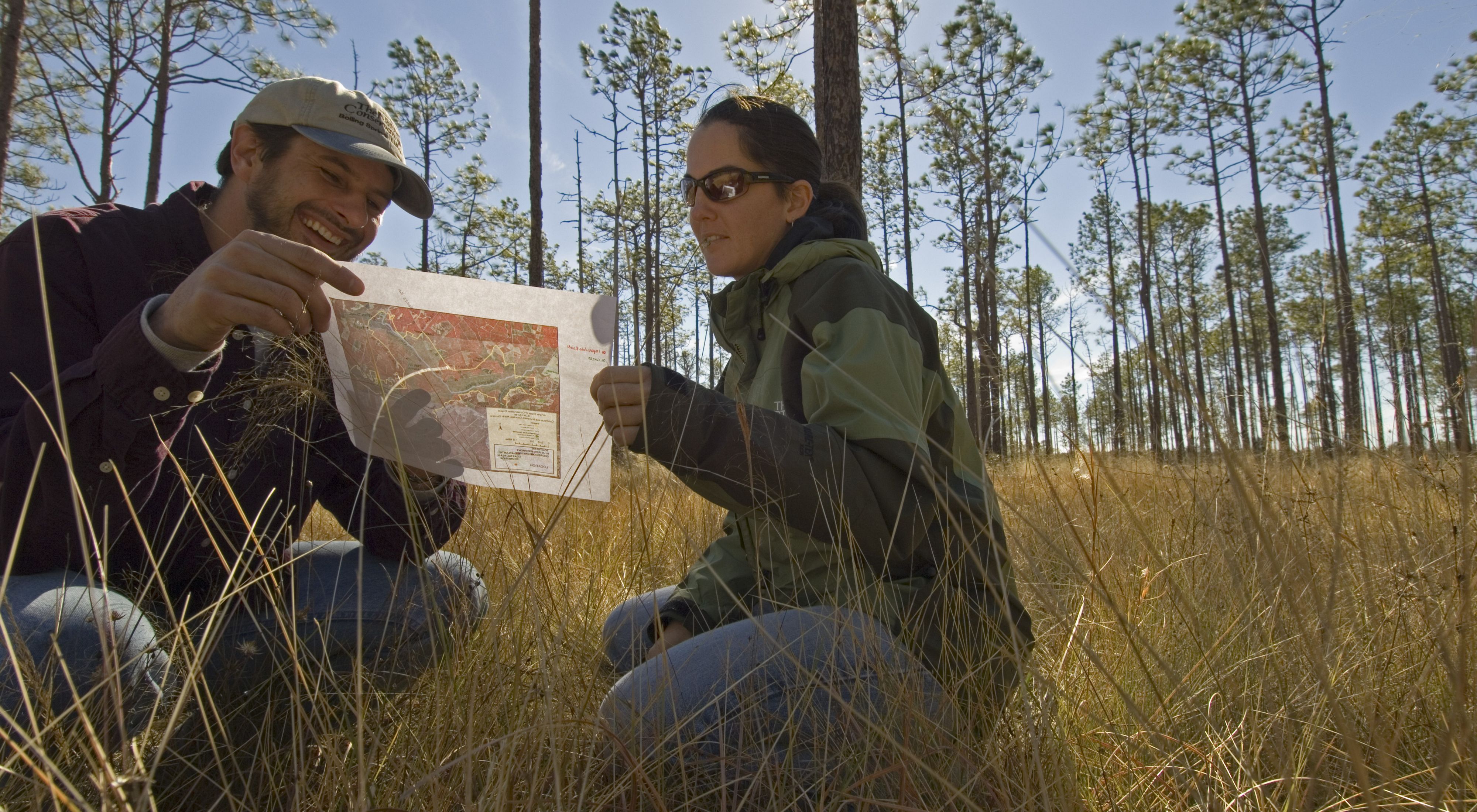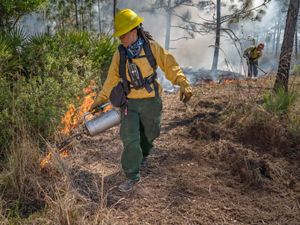Nature Conservancy, Forest Service Sign New Cooperative Agreement
Will expand collaboration on wildfire, forest restoration, climate work
Media Contacts
-
Jay Lee
The Nature Conservancy
Phone: 301-640-1615
Email: jay.lee@tnc.org
The Nature Conservancy (TNC) and the U.S. Department of Agriculture’s Forest Service today announced the finalization of a new five-year partnership agreement that adds to the suite of tools supporting collaborative conservation efforts across the country.
This national Master Participating Agreement (MPA) – signed by Forest Service Chief Randy Moore and TNC CEO Jennifer Morris – will facilitate project work through Supplemental Project Agreements at national, regional, and local levels as resources and commitments become available. These projects will encompass work ranging from restoring ecosystems to addressing climate change impacts in addition to existing efforts to reduce wildfire risk.
“TNC and the Forest Service are working together to meet shared goals,” said TNC Chief Executive Officer Jennifer Morris. “This agreement will speed the development of landscape-scale projects to improve forest conditions across the United States. This adds to the suite of tools we’ve developed with the Forest Service to help implement priority work on the ground and is especially important to help mobilize the considerable resources made available through the Infrastructure Investment and Jobs Act and the Inflation Reduction Act.”
Quote: Jennifer Morris
This agreement will speed the development of landscape-scale projects to improve forest conditions across the United States.
“Together, these agreements affirm the vision we share with The Nature Conservancy and the partnership we have developed over decades,” said Forest Service Chief Randy Moore. “Namely, we are seeking to join with others to tackle forest and grassland climate change mitigation and adaptation, prepare American landscapes and communities to address the wildfire crisis and other significant disturbances, and scale protection and management efforts commensurate with the threats facing people and nature, especially historically underserved and excluded communities.”
This new, more expansive agreement is part of a suite of operational agreements that include a partnership to speed the application of forest health and prescribed fire treatments, develop workforce capacity to support forest health, facilitate ecosystem studies, and to support urban forestry and cost-share agreements. The agreement will support assessments, communications and outreach, training, workforce development, and other needs.
Partnerships have grown significantly since the first project implementation agreement, a 1998 project of $11,000 with TNC’s Oregon chapter on the Siuslaw National Forest. In recent years, over a dozen shared positions across 10 states are helping build capacity and support science, public engagement, and conservation action on the ground.
In fiscal year 2022, TNC and the Forest Service invested more than $25 million through multi-year agreements, delivering significant conservation outcomes across various resource areas and geographies. Flagship partnership agreements support the suite of fire networks (PERFACT) and resource mapping (LANDFIRE), which have worked to promote forest health and mitigate wildfire risk.
“Indeed, the Forest Service and TNC are long-standing, deeply engaged partners working together in a wide array of natural resource management, science, and education efforts across the U.S. and internationally. This new agreement helps build out the suite of tools that will help propel the partnership forward to collaborate across borders protecting forests and grasslands; restoring ecological condition and function of forests and grasslands; and growing resilient ecosystems, communities, and organizations,” added Chief Moore.
For examples of conservation work enabled by these agreements, see Sycan Marsh Preserve and the Longleaf Pine Initiative.
The Nature Conservancy is a global conservation organization dedicated to conserving the lands and waters on which all life depends. Guided by science, we create innovative, on-the-ground solutions to our world’s toughest challenges so that nature and people can thrive together. We are tackling climate change, conserving lands, waters and oceans at an unprecedented scale, providing food and water sustainably and helping make cities more sustainable. The Nature Conservancy is working to make a lasting difference around the world in 81 countries and territories (40 by direct conservation impact and 41 through partners) through a collaborative approach that engages local communities, governments, the private sector, and other partners. To learn more, visit nature.org or follow @nature_press on X.



